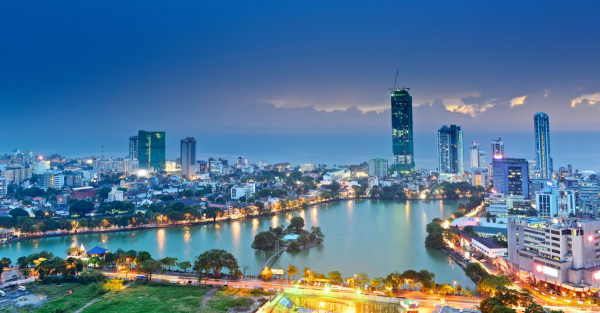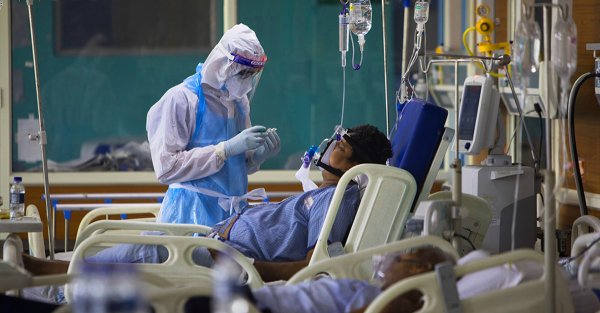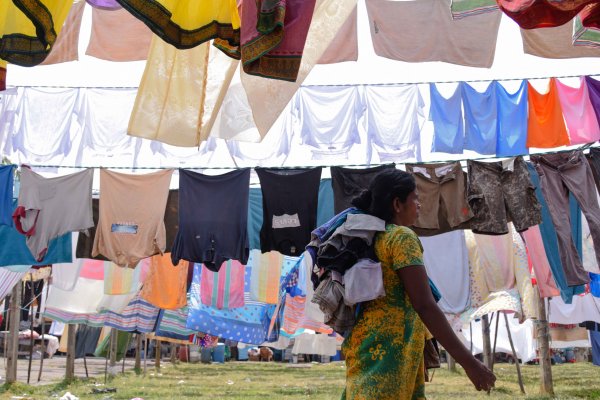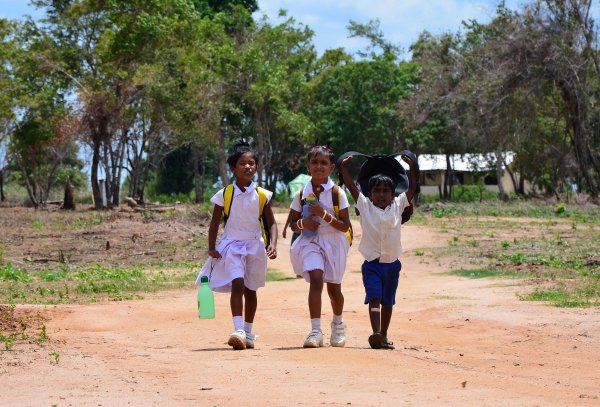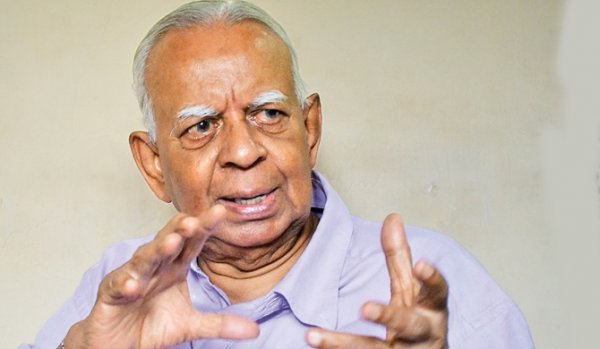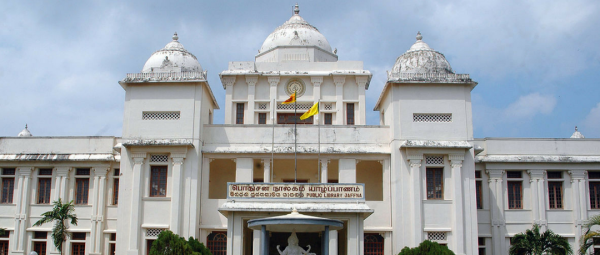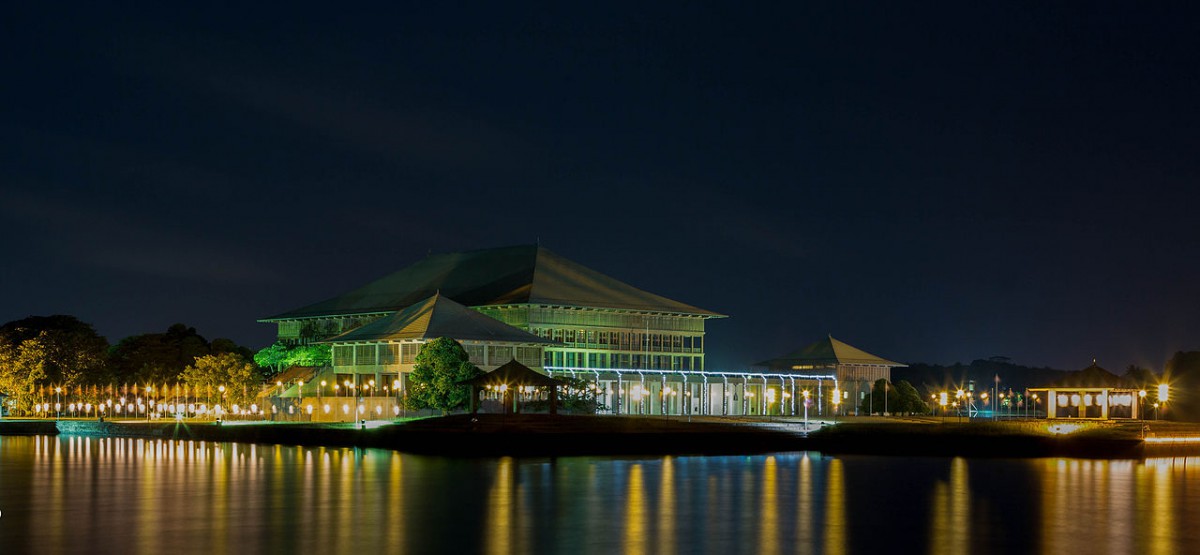
The budget for 2018 was presented by the Minister of Finance and Mass Media Mangala Samaraweera, last Thursday (09). Called the ‘blue-green budget,’ the Minister noted that the government now intends to utilise the “full economic potential of ocean related activities” and build an economy based on environmentally sustainable development strategies. According to the government, the budget is also heavily focused on ‘liberalization’ and empowering women.

Minister of Finance and Mass Media Mangala Samaraweera presenting the budget at Parliament. Image courtesy of parliament.lk
Stability vs Concessions
“The main thing this budget is bringing forth is stability, as opposed to the risk of it providing giveaways,” Shiran Fernando, Chief Economist at the Chamber of Commerce, told Roar Media.
The budget has not made many notable concessions, with most of the price changes done prior to the budget. Fernando stated that a policy shift to move away from indirect taxes would eventually see consumers being taxed less.
Furthermore, listed companies with foreign ownership will have less restrictions to land ownership and foreigners will be able to purchase condominiums below the fourth floor. Researchers state that this is mostly because of the booming real-estate industry, and because Sri Lanka is in need of FDIs to pay off external debts, which would be difficult to pay off if only locals were allowed to purchase real estate.
Addressing concerns about this move potentially making it difficult for Sri Lankans to purchase the same if foreigners could afford to pay more, Fernando pointed out the concession was for listed companies only. Additionally, this was proposed in last year’s budget as well, and is merely reiterated in this.
Meanwhile, some proposals are already up for amendment. One of the proposals was for removing taxes on imported, new electric vehicles to discourage the use of fossil fuels. It is unclear how much of an impact this will have as most electric vehicles imported are reconditioned and not brand new.
“According to what is being reported, they are looking at amending what’s been said for electric vehicles to include used vehicles in the equation as well,” Fernando said. When Roar Media queried whether the carbon tax is practical and applicable, he stated that it depends on the implementation mechanism but added that the current proposals are a bit more specific than the ones made last year. This year, the price per engine size and age of the vehicle to be taxed have all been laid out, he added.
When asked about the pros and cons of the budget for the general public, Fernando reiterated that the budget would tax the public less in the long term, especially as it focuses less on concessions and more on strengthening the economy, what with the initiatives to encourage SMEs, exporters and entrepreneurs.
The proposed budget for the coming year may not have groundbreaking concessions and tax breaks, but it does look like it’s beneficial for the country in the long run; at least in terms of investment, environment, and health.
Here are a few highlights:
Motor Trade
- A super-luxury tax is to be imposed, in addition to the already existing luxury and semi-luxury taxes on vehicles. The tax will be on vehicles with an engine capacity over 2,500cc.
- Taxes on electric vehicles will be reduced to promote non-fossil fuels.
- Implementation of a carbon tax on vehicles run by petrol and diesel. This will be based on each vehicle’s engine capacity.
Moving towards going green, the government intends to tax vehicles depending on their engine capacity, while reducing taxes on electric vehicles. It’s estimated that the revenue generated from excise duty and luxury tax revisions of petrol and diesel vehicles will amount to Rs. 25 billion. The funds generated from carbon taxes will be “channeled to protect the environment”.
Import taxes on electric cars will be reduced by at least Rs. 1 million, and import taxes on high-end fossil fuelled vehicles will increase by an estimated Rs. 2.5 million.
Rs. 500 million has also been allocated to introduce 50 electric buses to the public transport sector.
Health And Environment Sustainability
- Sweetened beverages will be taxed based on how many grams of sugar they contain. Each gram will be taxed 50 cents each.
- Excise duty of Rs. 10 per kilogram will be charged for plastic resins.
- Investments to protect coastal belts from erosion.
In addition to carbon taxes and pushing for electric vehicles, measures to protect the environment include duties on plastic resins. There are proposals to incentivise the private sector to produce bags and other packing material out of biodegradable materials. Furthermore, the government will focus on 10 lagoons, in which significant investments will be made to conserve its unique eco-system. This is in addition to initiating projects to protect coastal belts from erosion.
Taking diabetes seriously (there have been numerous awareness campaigns over the last year about the sugar being addictive and resulting in as many or more deaths than tobacco), there will be a sugar tax on drinks which have added sugar in them.
Agriculture
- Agricultural equipment and advanced technology will be exempt from NBT.
- Rs. 3 billion to be invested in an insurance scheme covering six varieties of crop.
Recognising the need for a mechanised and commercialised agricultural industry, this budget is moving towards ‘new and sustainable technologies’. Making this more accessible to farmers islandwide, taxes on selected agricultural equipment will be removed. Given the unpredictability of the weather and how farming has suffered as a result of droughts in many areas of the country, the government has introduced an insurance scheme for farmers as well.
Tourism
- 1% tax on commission for online travel agents.
- VAT refunds will be made available for tourists.
- Duty imposed on off-road electric vehicles will be revised.
It is estimated that tourism will triple by 2020. In order to accommodate the increased numbers, the government will be encouraging homestays. Taxes from certain imported goods will also be removed, including rationalising taxes on alcohol. Domestic airports will be upgraded, as will several railway stations. The stations at Colombo Fort, Nanu Oya, Galle, and Ella are to be declared as archaeological sites.
Suggestions have been made for all tourism agencies to register with the Sri Lanka Tourism Development Agency (SLTDA) as well.
Telecom
- A Monthly tax of Rs. 200,000 Will be imposed on each cellular tower.
- Bulk SMS sent out for advertising purposes will also be taxed.
Identifying telecom towers as a health and environmental hazard, the government intends to tax each cellular tower and push mobile service providers into sharing aforementioned towers. Advertisements sent through text messages will be levied 25 cents per SMS from 01 April 2018.
Finance
Sri Lanka’s debt repayment, including international sovereign bonds, amount to nearly Rs. 07 trillion. As such, each thousand rupee transaction made through banks will be levied 20 cents for the next three years, starting from 01 April. The cost is supposed to be borne by the bank and not passed onto the customers.
Prioritising Women
Speaking at KPMG’s Budget Highlights, State Minister Eran Wickramaratne pointed out that women make up only 34% of the labour force, despite over 50% of university graduates being female. His proposal was to improve the conditions for women in the government and private sector, though he did not elaborate how. However, he also stated that there is a need to create “practical circumstances to manage their homes and children” along with work.
The government will, therefore, be introducing preferential treatment in loan-schemes for women, Minister Wickramaratne said.
Moving Forward
During his address, the Minister Wickramaratne stressed on the government’s “vision to go down a liberalized agenda.” Admitting that Sri Lanka’s existing legal frameworks are what holds the country back, he claimed that the government hoped to replace and amend existing Acts which restricted development: the Land Restriction Act, and the Customs Ordinance being two of them.
“If Sri Lanka is truly going to be a regional hub in logistics and shipping, we need to be liberalized,” he said.
This year’s budget seems to have a heavy focus on promoting tourism and international trade, with a certain degree of attention given to encouraging entrepreneurship, environmental conservation, and female empowerment. How successfully these objectives will be achieved will have to be seen.
Meanwhile, the full text of the Budget Speech can be read here.
Cover courtesy of: wikipedia.org

